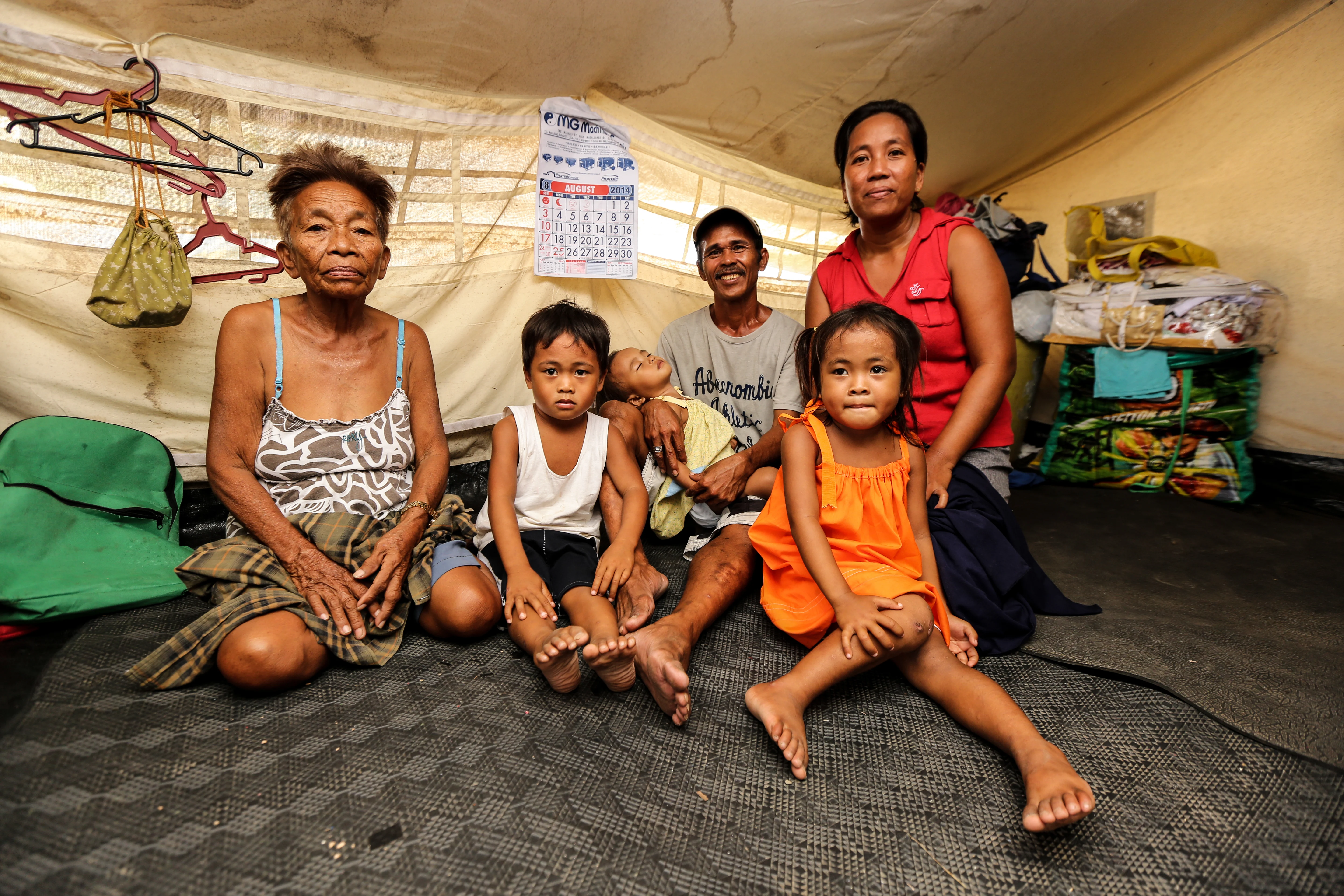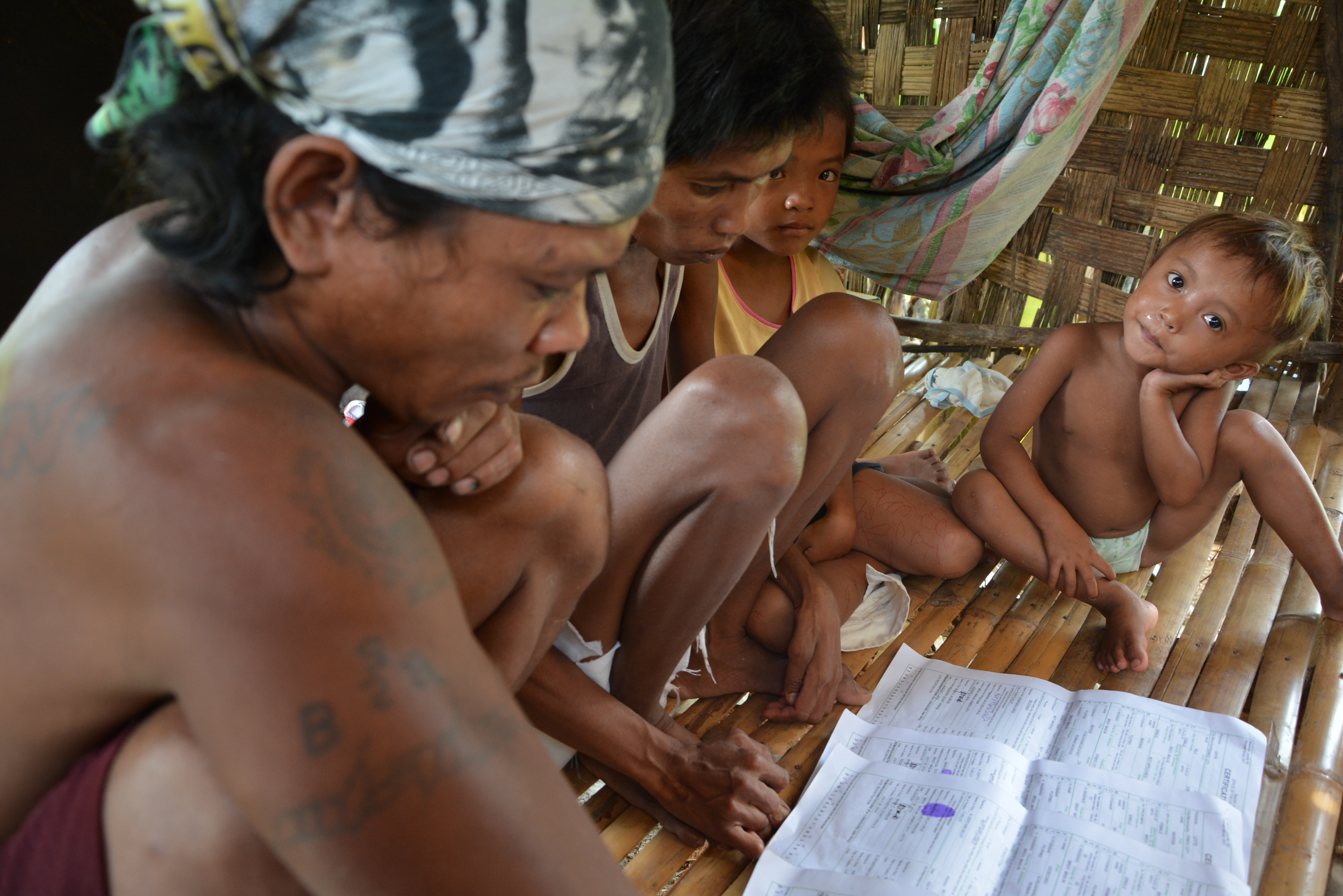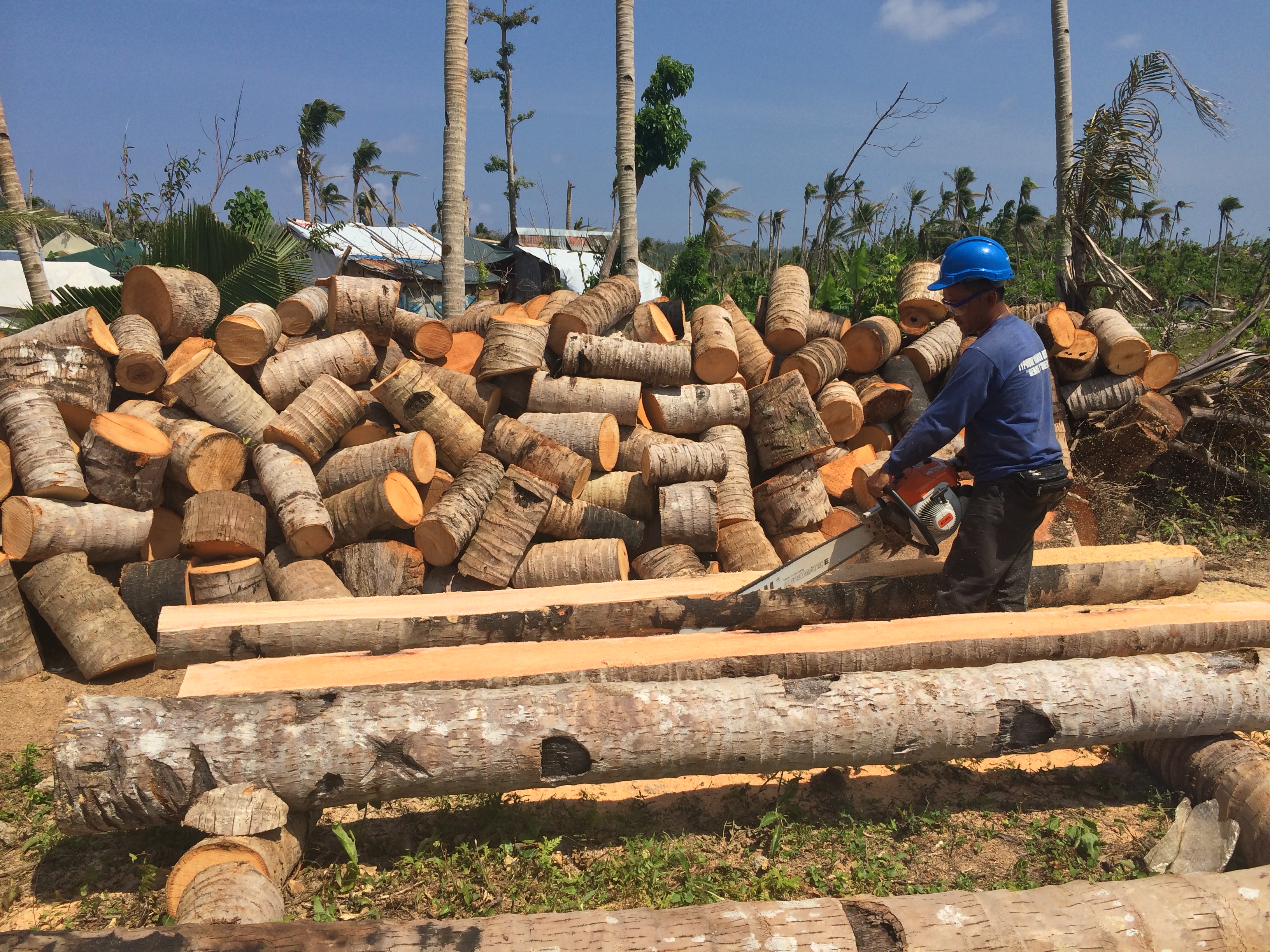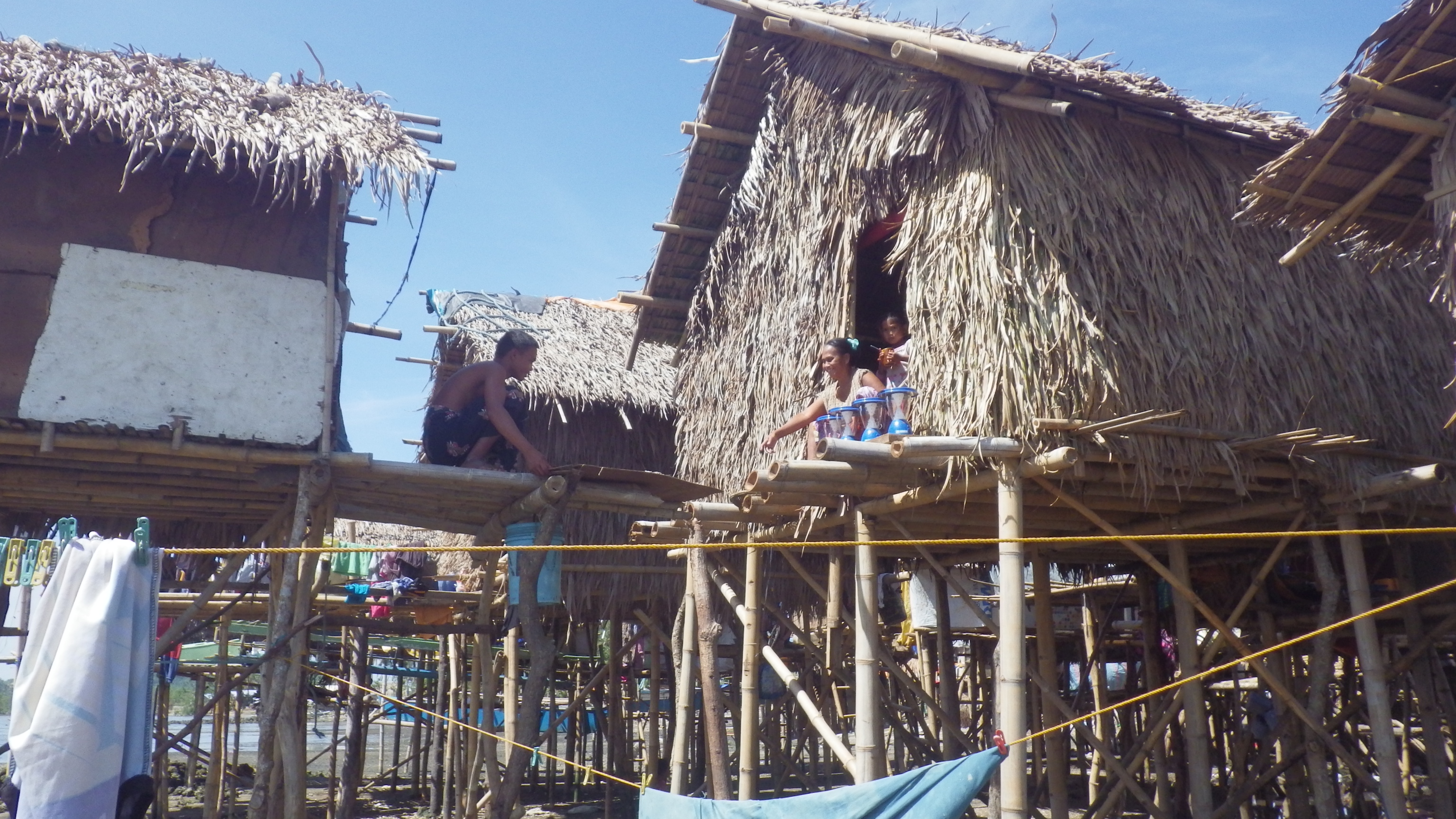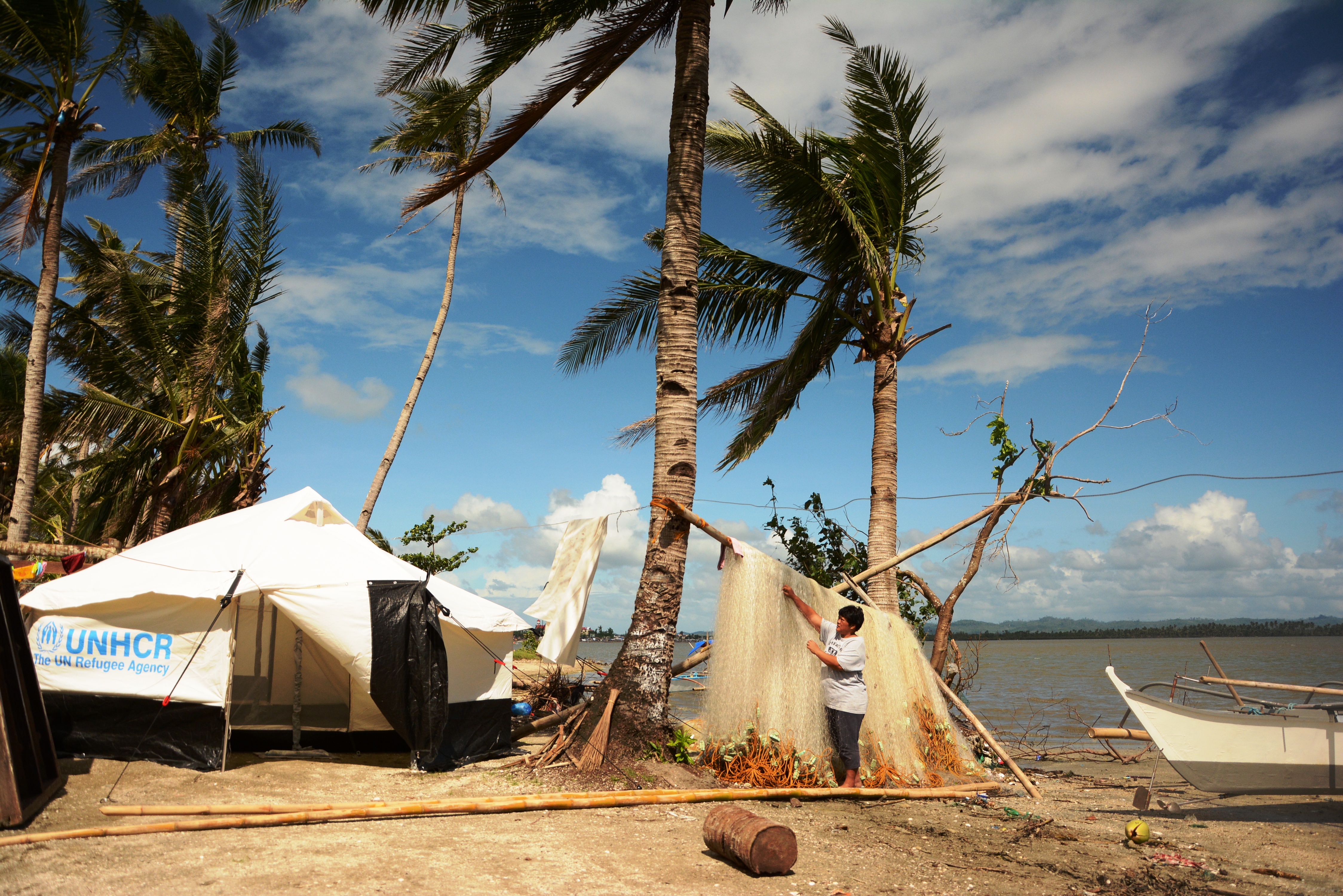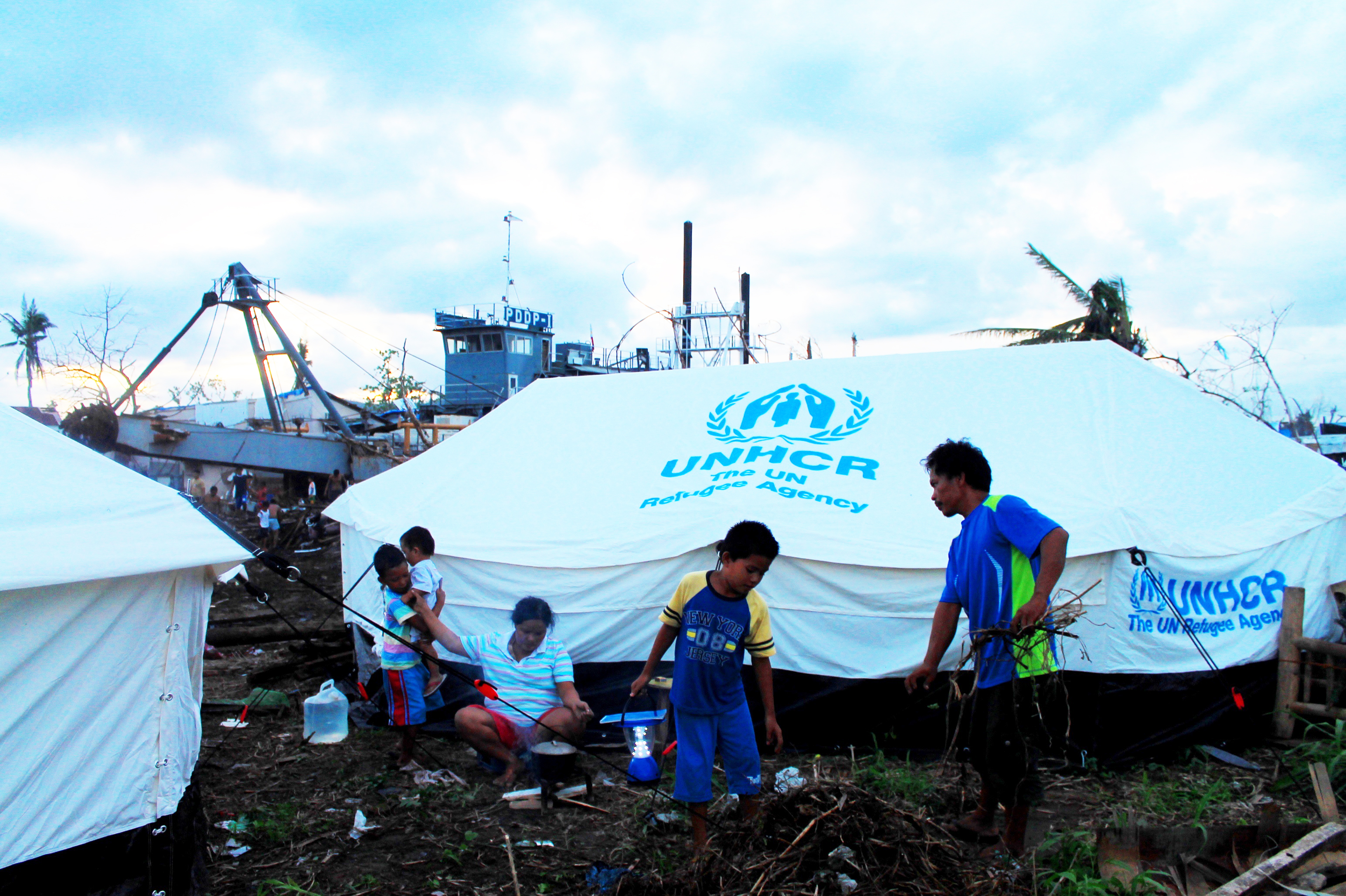Typhoon Haiyan: Needs shifting as displaced communities look to rebuild
Typhoon Haiyan: Needs shifting as displaced communities look to rebuild
Two weeks after Typhoon Haiyan swept through the Philippines, affected communities are asking for shelter materials to start rebuilding their lives.
Earlier this week UNHCR staff were deployed to Ormoc in western Leyte province and Guiuan in Eastern Samar province. They have been visiting numerous (barangays) administrative units to assess the evolving protection and other needs of typhoon survivors. They found some gaps that are being addressed.
In some remote areas of Guiuan, where the typhoon first hit in the morning of November 8, logistical problems have hampered the smooth distribution of aid including to the islands of Homonhon and Suluan. In addition, a community of 50 indigenous families who previously were not registered with the municipal authorities in Marabut on Samar Island, have not been receiving assistance.
As the co-lead for the protection cluster, UNHCR is working with the government and the World Food Programme to address these gaps and ensure that all affected groups can receive assistance equitably.
Our staff also noticed that many communities are slowly getting back on their feet especially in the city centres. Some shops are starting to re-open and commercial activities are resuming. In areas like Ormoc's barangay Tagatay where most of the houses were affected, people have started building makeshift shelters while repairing their houses.
However the situation in suburban and rural areas still remains difficult.
To date UNHCR has distributed relief items to some 23,000 typhoon survivors in Tacloban's San Jose and Bagacay areas, and in Tanauan. The areas south of Tacloban - such as Tanauan, Julita and Talosa - are severely affected and could take a longer time to recover. In the last two days UNHCR has been sending teams there to assess and coordinate aid distribution.
In addition, UNHCR is donating tents to the national Department of Social Welfare and Development (DSWD) in Tacloban to enable policewomen to monitor the situation in evacuation centres more closely. The agency has also given an initial batch of 64 tents to help decongest schools currently being used as evacuation centres. This will help to re-open schools and restore some normality in the survivors' lives.
In Tacloban, we have received additional items from Cebu and expect supplies from Manila shortly. These will bring a total of 3,000 tents, 16,000 plastic sheets, 46,000 blankets and other urgently-needed items. We are dispatching some of these supplies to Guiuan and Ormoc based on identified needs. These items will provide some temporary respite from the elements while survivors focus on rebuilding their homes.
Meanwhile, thousands of displaced people continue to leave Leyte by air and sea. A monitoring service provided by the protection cluster at the government's request seeks to ensure assistance for vulnerable people and to prevent trafficking. On Wednesday, UNHCR set up tents at the Tacloban airport to provide shelter to the waiting crowd. Starting on Sunday, 17 November, the International Organization for Migration (IOM) and Department of Social Welfare and Development started registering people leaving on cargo planes, collecting data on their destination, needs and vulnerabilities. The Salvation Army was also present to provide food and water.
According to the Department of Social Welfare and Development, some 2,000 displaced people were registered at the airport yesterday before departing Tacloban. In Ormoc and Guiuan, hundreds of people are also leaving every day by air to Cebu and Manila. Many more are taking the sea route. The monitoring service will be expanded to these departure areas soon.
For more information on this topic, please contact:
- In Tacloban, Vivian Tan on mobile +639175963484
- In Manila, Fernando del Mundo on mobile +639209283958
- In Manila, Marie Michelle Liquigan on mobile +639189208765
- In Manila, Karin de Gruijl on mobile +63 91 834 3838
- In Geneva Babar Baloch on mobile +41 79 557 9106

